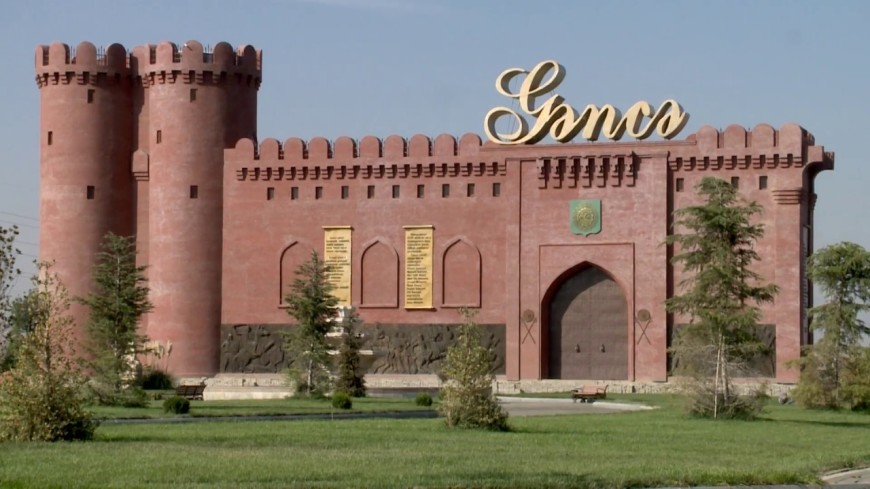Our favorite local haunts, touristy spots, and hidden gems throughout Ganja City

GencLand Family Recreation Complex
Gencland Park is ideal for visitors of all categories: children, teenagers, families and seniors. Various attractions, walking chess, shooting gallery, 7D movie theater, soccer fields, carting and much more await you here.
At Gencland you can stroll through areas decorated with greenery and flowers and enjoy performances and concerts, which are organized every evening in the amphitheater for free. The 60 animal figures and fairy tale characters and the children's playground are always a delight for children. Various cafes and restaurants are also available for visitors.
Nizami Ganjavi Mausoleum
Nizami Mausoleum is a historical monument built in honor of the famous Persian poet Nizami Ganjavi, who lived in the 12th century and is considered to be one of the greatest poets of the Persian literature. Nizami's mausoleum is a fine example of medieval Islamic architecture. It is decorated with intricate brickwork and tiles, as well as a dome and minaret. Inside the mausoleum there is a tomb in which the remains of Nizami Ganjavi are believed to rest. Today, the Nizami Mausoleum is a popular tourist attraction visited by people from all over the world who come to pay tribute to Nizami Ganjavi and appreciate the beauty of this historic site.
The House of Bottles
One of the most unusual constructions in Ganja is the House of Bottles, built in 1967 by Ibrahim Jafarov in memory of his brother who disappeared during the Great Patriotic War. The walls of the house are decorated with 48 thousand bottles of different sizes and colors.
The house-bottle reminds a prism, refracting and reflecting the light that penetrates through its walls. In the sunlight it is transparent and shimmers with sparkling colors. Every square inch of the building is covered in a mosaic made from the thousands of bottles that lined its walls, creating designs, inscriptions, and patterns.
GanjaState History and Ethnography Museum
Museum of history and regional history named after Nizami Ganjavi is an important attraction in Ganja.This museum was built on the initiative of teachers and students of Ganja Pedagogical Seminary in 1924. There are several thousands of exhibits in museum and 3 sections - pre-revolutionary, Soviet and local history.
One can find books, weapons, crockery, printed matter, household utensils of different times here. Among the exhibits of the museum, there are interesting findings belonging to the Bronze Age.
Ganja Puppet Theater
Ganja State Puppet Theater is a theater located in the city of Ganja. Adults and children come with pleasure to the performances of different genres and subjects. The theater shows performances of traditional Azerbaijani folk tales and legends, as well as more contemporary plots and themes.
Ganja State Puppet Theatre is famous for its talented actors and professional productions on topics such as gender diversity and ecology. Besides performances the theater also organizes educational programs for schools and public organizations, training programs and seminars for young puppeteers.
Şah Sarayı Restaurant
This restaurant offers service in a traditional Azerbaijani atmosphere. Here you can enjoy your meal sitting at outdoor tables. Şah Sarayı Restaurant offers guests such facilities as free out-of-street parking, TV, high chairs for children and etc. Visitors to this restaurant are pleased with the low prices and friendly staff.
Ganja Mall
Ganja Mall is nearly in the center of city, approximately 200 meters from the Ganja hotel. It has almost all the most necessary things that residents and travelers need. On the first floor there is a supermarket, pharmacy, linen and electronics stores. The second and third floors have clothing and shoe stores such as LC Waikiki, De facto, Colin's, Wagon, Go sport, Greyder, Flo, etc. A food court with KFC, Mcdonald's and local fast food is on the fourth floor. And on the fifth floor there is a CinemaPlus cinema.
Ganja Gate
The ancient Ganja Gate is a set of 6 ornate iron gates originally cast to lock the fortifications of the newly built city. It was under Shavur I, the 8th Emir of Dvin and Ganja, that master blacksmith Ibrahim ibn Osman manufactured them in 1063. They were decorated with stamped ornaments and patterns on the outside. However in 1139 a strong earthquake nearly destroyed the city. The then Georgian king Demetrius I, who was in a territorial dispute with the Shaddadids, took advantage of the situation and seized the city. As military retaliation, the gates were sent by the surviving inhabitants of Ganja to his kingdom. Only part of them has survived to this day, and to this day is on display in the Gelati Monastery in Georgia.
Center of carpet weaving
The Center of carpet weaving was founded in 1984 to continue the thousand-year tradition of carpet weaving in the region. Artisans hand weave wool and silk carpets using traditional techniques of the region. Using ancient techniques, they create intricate patterns and vibrant colors that stand the test of time and inspire an authentic feeling. Rug designs are often inspired by nature and local history. The Ganja Carpet Weaving Center is also a place where rugs are exhibited and sold. Visitors can learn about the various stages of carpet making and purchase unique pieces directly from the artisans.
The Ganja State Philharmonic Hall
The Ganja State Philharmonic Hall is considered as one of the most important concert halls in the country and is known for its unique architecture and large capacity. The concert hall was built in 1953 and has undergone extensive renovations ever since to maintain its quality. A wealthy diversity of musical styles are interpreted within, reflecting the different cultures and traditions of the region. Traditional music in Azerbaijan is widely influenced by Persian, Turkish and European classical music, as well as by the folk music and dances of the Caucasus region. Traditional Azerbaijani music is often played at local celebrations and festivals, as well as in concert halls such as the Ganja State Philharmonic Hall.








